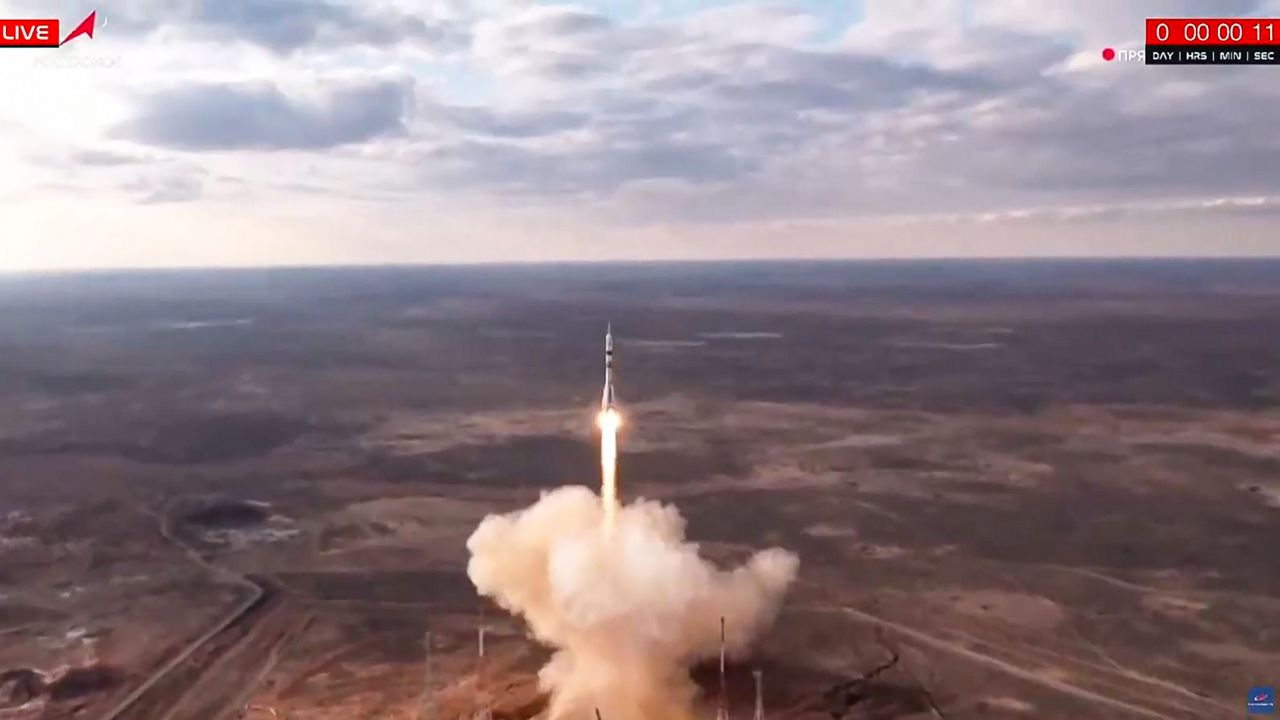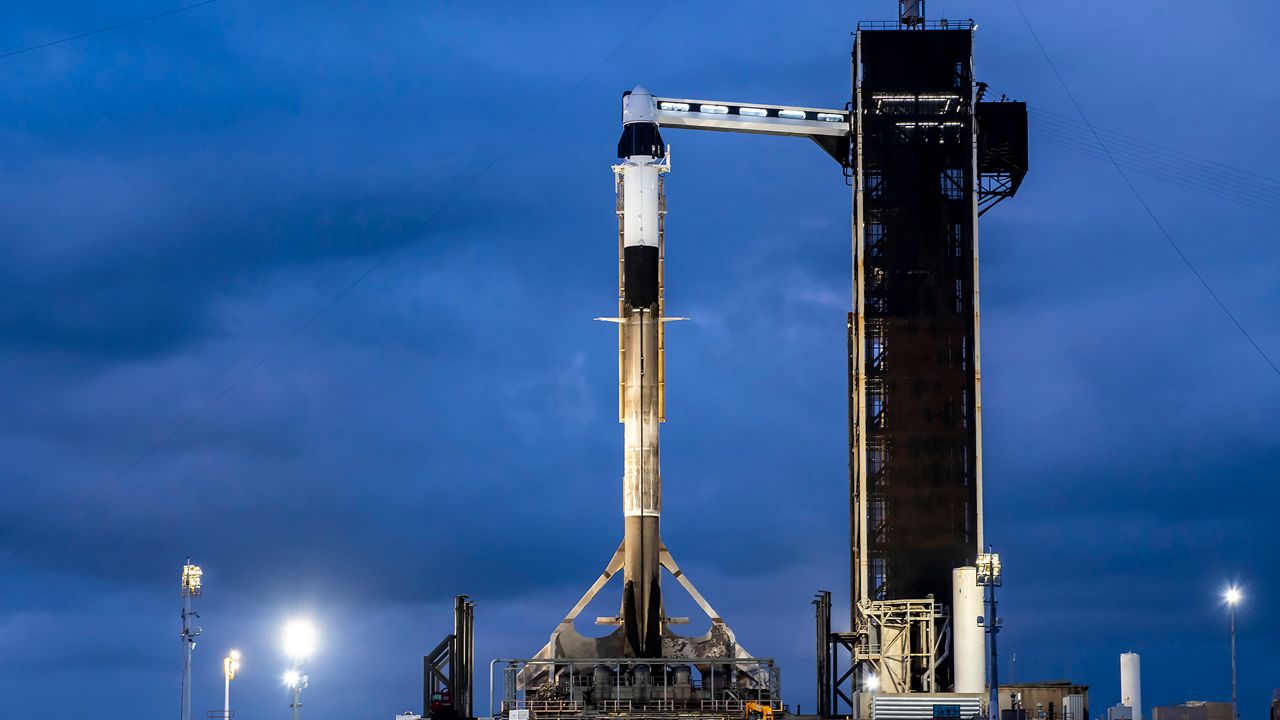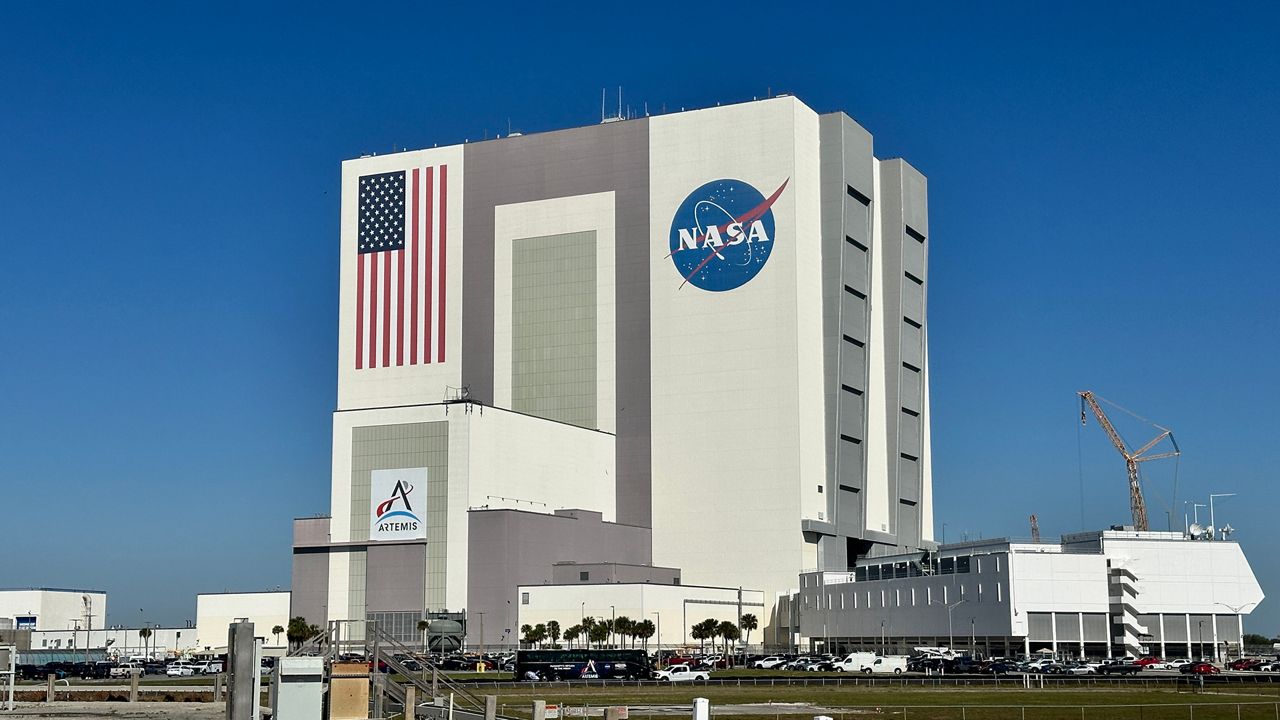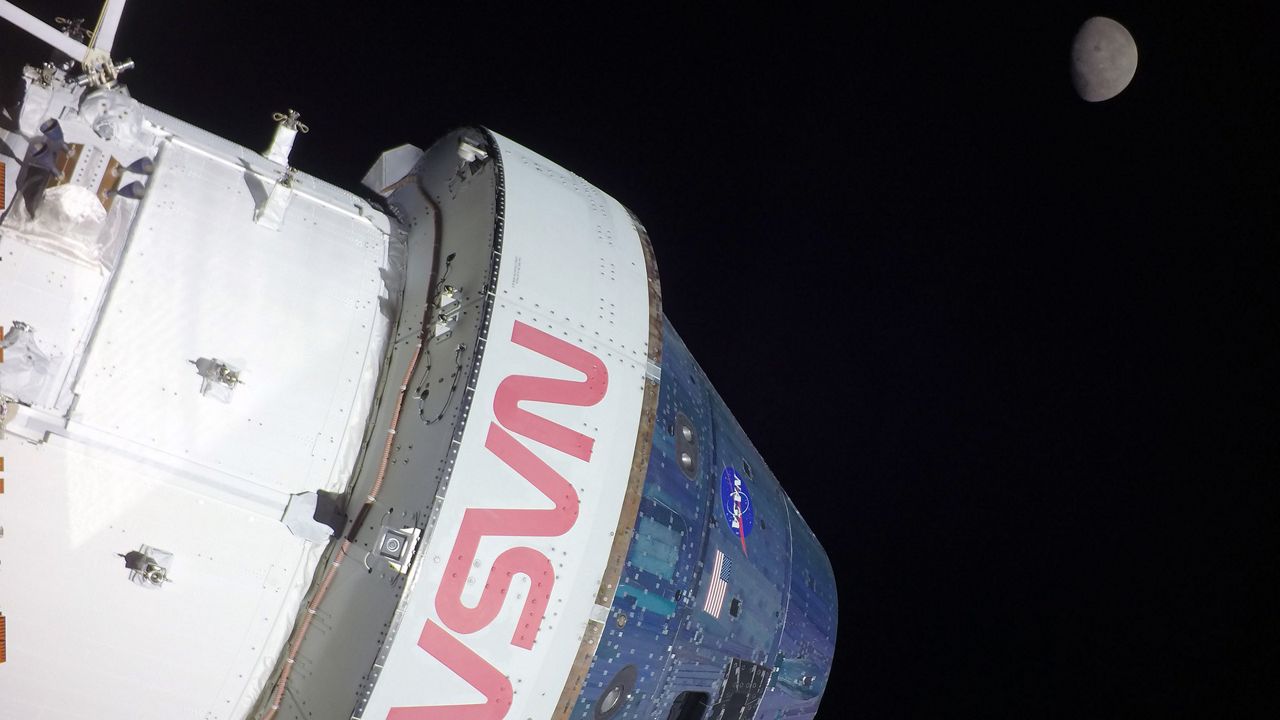CAPE CANAVERAL SPACE FORCE STATION — Despite an issue with the electrical system in its first launch attempt a few days before, Russian space agency Roscosmos sent three crew members, including a NASA astronaut, to the International Space Station on Saturday morning.
What You Need To Know
- The reason for the scrub was due to low voltage reading in Soyuz rocket electrical system
- The liftoff happened from the Baikonur Cosmodrome in Kazakhstan at 8:36 a.m. ET
- They will dock with the ISS on Monday
- SIDEBAR: Why the U.S. still launches American astronauts into space on Russian rockets
- Get more space coverage here ▶
- 🔻Scroll down to watch the launch🔻
Liftoff! Three Soyuz crew members, including Tracy C. Dyson, are headed to the @Space_Station. Live docking coverage will begin Monday, March 25, at 10:15am ET (1415 UTC). pic.twitter.com/maMpAo9Zl2
— NASA (@NASA) March 23, 2024
NASA astronaut Tracy Dyson, Roscosmos cosmonaut Oleg Novitsky, and spaceflight participant Marina Vasilevskaya of Belarus left the Baikonur Cosmodrome in Kazakhstan at 8:36 a.m. ET, Saturday, and are on their way to dock with the ISS on Monday.
They are riding in the Soyuz MS-25 spacecraft (launched from a Soyuz-2.1a rocket), which both vehicles belonging to the Russian space agency Roscosmos.
“Dyson, Novitskiy, and Vasilevskaya will journey to the station on a trajectory that will result in a docking to the station’s Prichal module at 11:09 a.m. on Monday, March 25,” NASA stated.
Dyson will spend six months aboard the ISS as the flight engineer for Expedition 70 and 71, while Novitskiy and Vasilevskaya will spend 12 days on the ISS before returning home on Tuesday, April 2, in Kazakhstan.
An expedition means the current crew in the International Space Station.
Novitskiy is the crew commander, and Vasilevskaya is a flight engineer.
The first attempt was a scrub
The first launch attempt was originally set for Thursday, but NASA officials said the abort happened at T-20 seconds from liftoff at 9:21 a.m. ET.
It was later determined that a low voltage rating in the Soyuz's rocket booster's first stage electrical system was the cause of the scrub, but officials changed the batteries, and everything was in order, stated NASA on Saturday before the liftoff.








